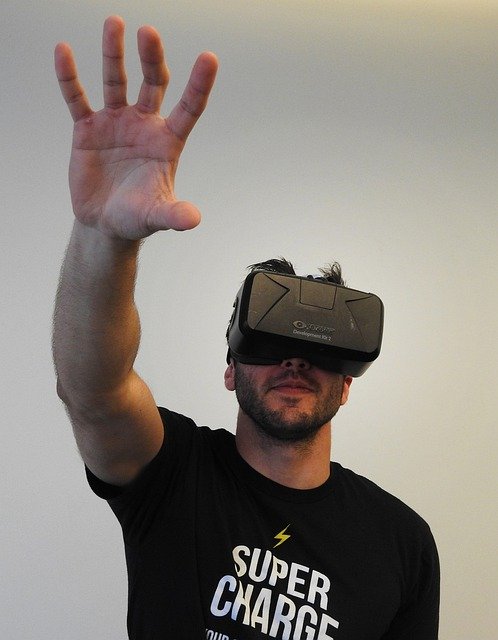What’s small and smart and worn all over?
It’s not a riddle, but a list of attributes envisioned by Nancy McElwain, a professor of human development and family
studies at the University of Illinois Urbana-Champaign, as she searched for a data collection tool compatible with her youngest research participants.
McElwain’s research focuses on attachment processes, or the relationships children form with their parents in infancy, and how those relationships shape social, emotional, and physiological development.
One challenge for McElwain is collecting information from children too young to self-report or operate a smart device on their own. This prompted her to connect with Mark Hasegawa-Johnson and Romit Roy Choudhury, professors of electrical and computer
engineering.
Nancy McElwain, a professor of human development and family students at the University of Illinois Urbana-Champaign, helped develop a remote data collection tool for young children and their families.
Working together, the trio of researchers developed LittleBeats, a small wearable device that collects data via electrocardiogram, audio, and motion sensors. Concealed in the front pocket of a specially designed, infant-sized shirt, LittleBeats enables
remote data collection from the comfort of a participant’s own home. Data from the device helps researchers evaluate infant stress regulation and physiological responses in the context of their everyday interactions with parents and siblings.
“Our end goal is to give back to the community and use LittleBeats as a tool for intervention and prevention. More broadly, it could be used as a way for parents to gain a detailed view of their child’s daily interactions,” McElwain
said.
LittleBeats data collection is still in its early stages, but the researchers are optimistic about future applications for the device.
“If parents and care providers can monitor a child’s development with this device, early identification of a motor or language delay, behavioral disturbance, or sleep disturbance could be possible,” McElwain said.
The ability to collect information using multiple measurements is a critical component of the project.
“We want to use electrocardiogram, audio, and motion sensors together to provide a better, more precise detection of the child’s emotions or behavior than any one sensor could do by itself,” McElwain said.
Her main measure of interest is respiratory sinus arrhythmia, which measures the “rest and digest” branch of the nervous system and is tracked by electrocardiogram. Audio capture enables researchers to record parent-child interactions
without the intrusion of video; pairing audio with electrocardiogram provides insight into stress regulation. Electrical and computer engineering researchers’ interest in motion data led to the inclusion of a motion sensor.
A specially-designed LittleBeats shirt.
LittleBeats is testament to the innovation made possible through interdisciplinary work at the Beckman Institute for Advanced Science and Technology. Child development researchers provide suggestions for metrics to track, and engineers design
algorithms to meet those needs. The new algorithms developed have enabled richer data collection and faster processing. The collaboration allows HDFS students to learn the basics of machine learning and gives ECE students insight into real-world
application of their algorithms.
Engaging in interdisciplinary research does require some navigation between disciplines.
“We speak different scientific languages, so we have to find ways to bridge that divide,” McElwain said. “Our research can be very compartmentalized, but at the same time we’re helping each other generate ideas. Those questions
at the boundary of the disciplines inspire new discussions and new ideas that are beneficial to everyone.”
Participation in this interdisciplinary effort benefits not only researchers, but the 150-plus families enrolled so far. The LittleBeats team has partnered with researchers and clinicians at Cedars-Sinai Medical Center, Arkansas Children’s
Research Institute, Oregon Health and Science University, UNC-Chapel Hill, and Cincinnati Children’s Hospital to recruit families from across the country.
“We are attuned to the need for a diverse sample, both socioeconomically, racially, ethnically, and geographically. It is critical for child development research to study samples that reflect the entire population,” McElwain said.
Jordan Bodway manages the day-to-day activities of the LittleBeats study, including recruitment and outreach efforts.
Participant feedback has been overwhelmingly positive, according to project manager Jordan Bodway. Parents are eager to participate, finding the device easy to set up and pleasant to use.
“Many families we’ve recruited are from the local community, so they value research and what’s being accomplished at the university,” Bodway said.
The research team is also developing a visualization tool to assist parents in interpreting their own child’s data.
“LittleBeats families have been extremely generous with their time, and we’re excited to return their data to them in a format that will allow them to easily see patterns of behavior their child is experiencing in the home.
We want LittleBeats to have a positive impact on the families who use it,” McElwain said.
This insightful and innovative research would not have been possible without the use of the gold-standard data collection equipment housed at Beckman.
“I’m very appreciative for Beckman being the place where we feel at home doing this interdisciplinary research, where we feel supported, and where we’ve benefited immensely from the highly collaborative environment,”
McElwain said.
Editor’s notes:
Learn more about Little Beats on the project’s website: https://littlebeats.hdfs.illinois.edu/
Additional collaborators on the project included graduate students Jialu Li, Jeff Chang, and Zhijian Yang of ECE and Kexin Hu and Yannan Hu of HDFS, as well as postdoctoral student Bashima Islam, who is now at Worcester Polytechnic Institute.
This work has been supported by the National Institute on Drug Abuse, the National Institute of Food and Agriculture, the U.S. Department of Agriculture, seed funding from the Center for Social and Behavioral Science, Jump ARCHES, and the Personalized Nutrition Initiative.
